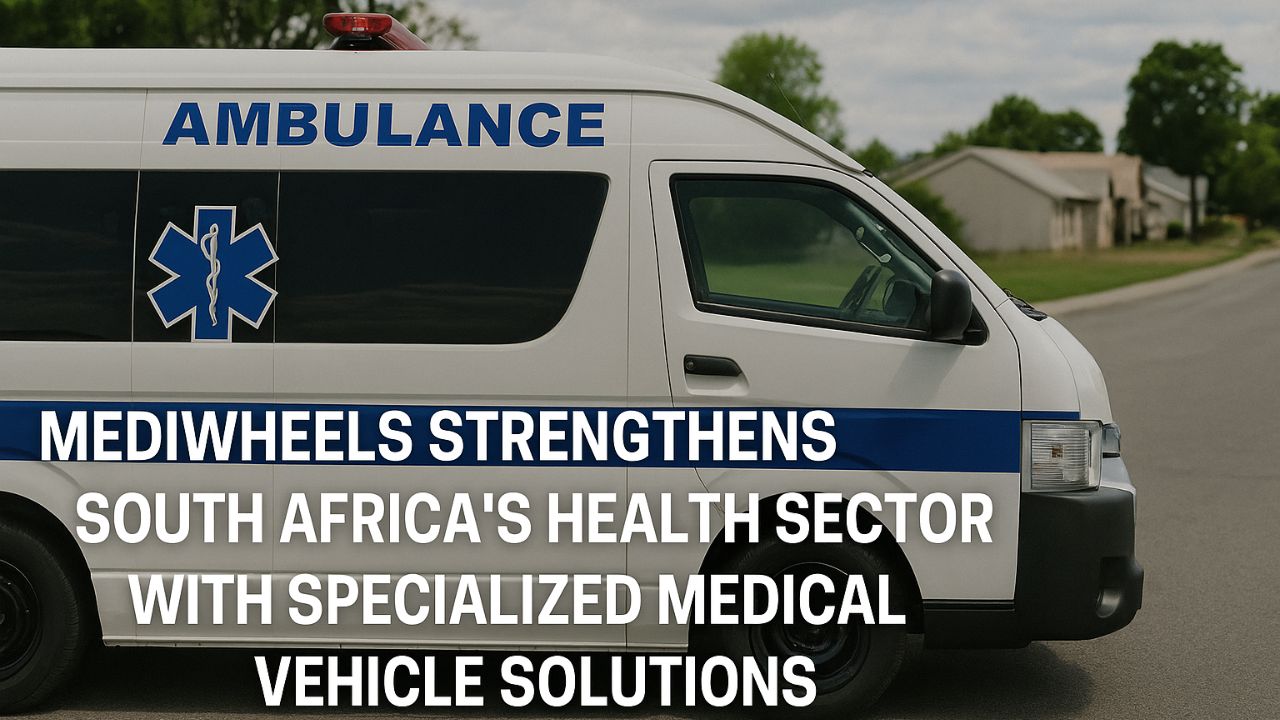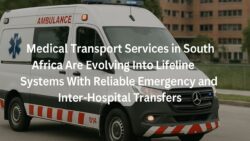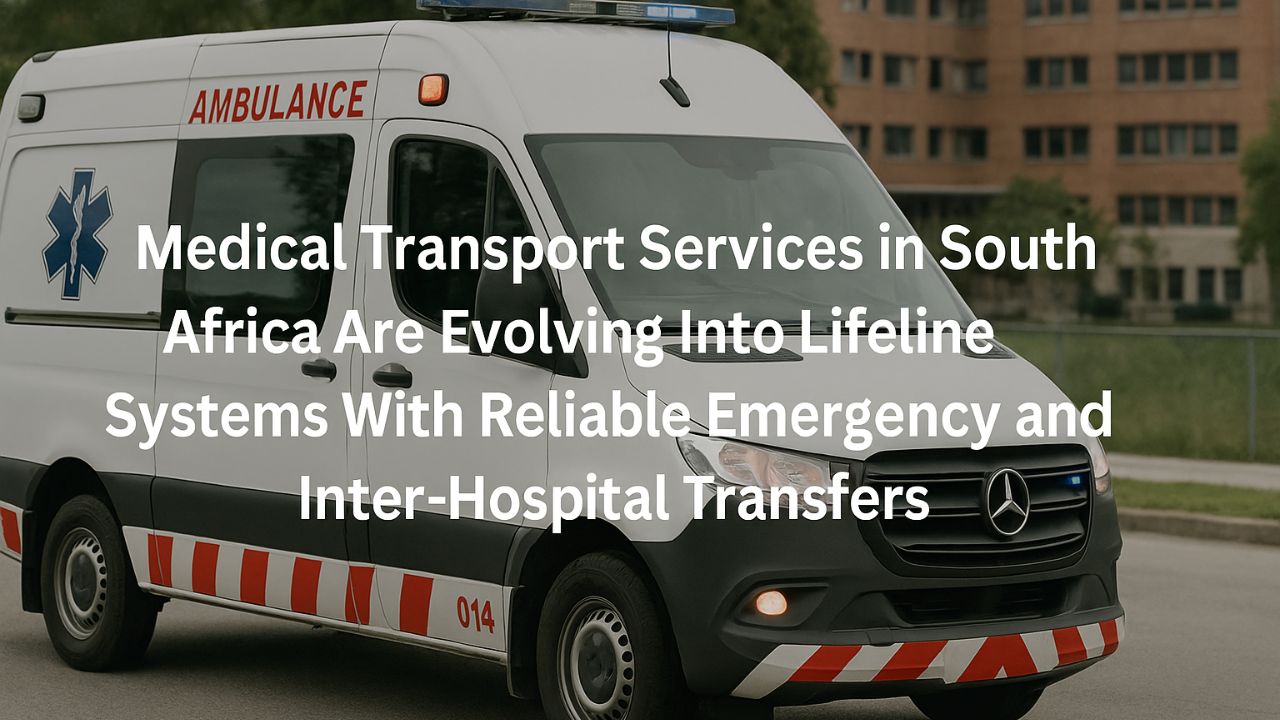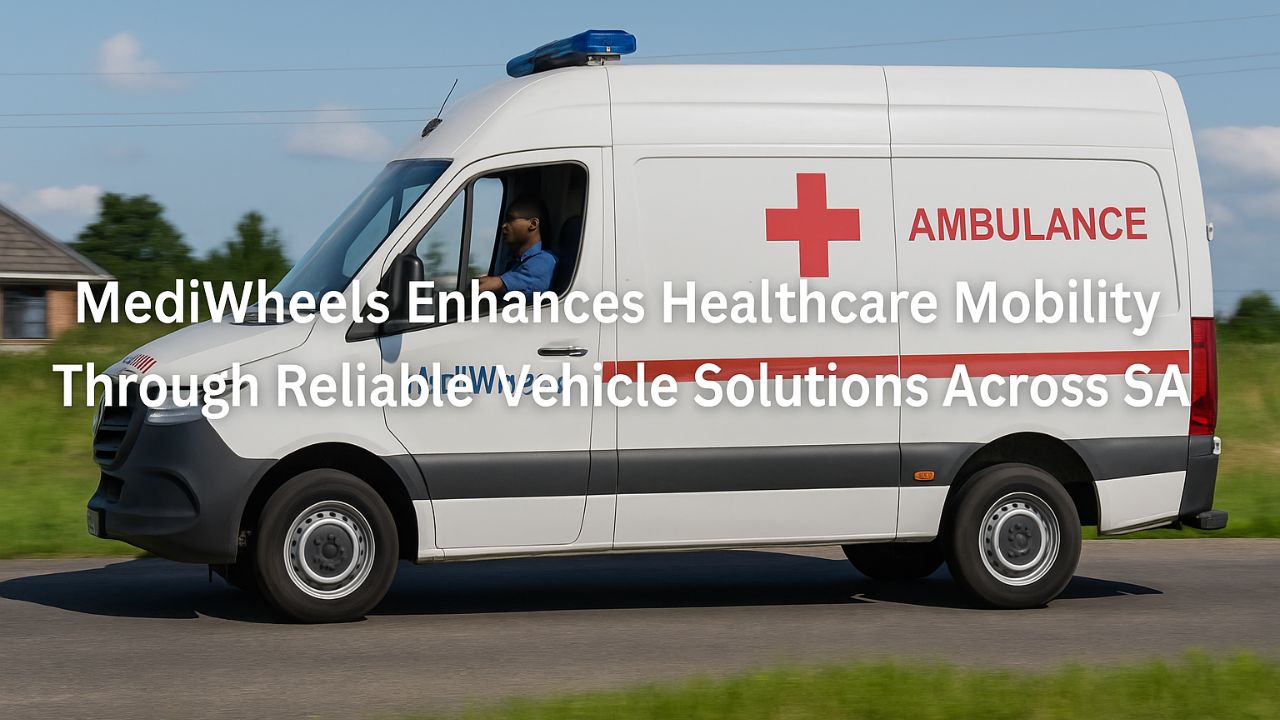Revolutionizing Healthcare Mobility : In a country where access to healthcare can often be a logistical challenge, especially in remote and underserved regions, MediWheels is making a transformative impact. As a leading provider of specialized medical vehicle solutions in South Africa, MediWheels is bridging the critical gap between patients and lifesaving medical services. From mobile clinics and ambulances to fully equipped emergency response units, the company is redefining how healthcare reaches the people who need it most.
Healthcare inequality remains a major concern in South Africa, where urban areas typically enjoy better access to facilities, equipment, and healthcare personnel compared to rural regions. Traditional health systems often struggle with delays, resource limitations, and poor infrastructure. This is where MediWheels steps in—by offering tailored, innovative, and mobile health solutions designed to ensure that quality care is not just confined to brick-and-mortar hospitals.
What sets MediWheels apart is its ability to adapt its offerings based on regional healthcare demands. Whether it’s a mobile maternity unit in a remote village, a blood donation vehicle at a public event, or a specialized neonatal ambulance for critical transfers, their fleet is designed with a focus on functionality, safety, and sustainability. These customized medical vehicles have become crucial tools in South Africa’s effort to decentralize healthcare and respond swiftly to emergencies.
As the demand for responsive and resilient healthcare infrastructure grows, MediWheels is proving to be more than just a supplier—it’s a partner in public health, innovation, and systemic transformation. Below, we explore the various facets of MediWheels’ contribution to South Africa’s healthcare evolution.
Tailored Medical Vehicle Solutions for Diverse Healthcare Needs
MediWheels offers a broad range of customized vehicles tailored to meet the specific requirements of healthcare institutions, NGOs, and government departments.
- Ambulances (Basic and Advanced Life Support)
- Mobile Clinics (Primary healthcare, dentistry, eye care)
- Emergency Response Units
- Mobile Blood Donation Units
- Mobile Pharmacies
- Mobile X-ray and Radiology Units
- Vaccination and Immunization Vehicles
Types of Vehicles and Their Primary Uses
| Vehicle Type | Primary Use | Special Features | Target Region | Client Type | Customizable Options | Staff Capacity | Maintenance Cycle |
|---|---|---|---|---|---|---|---|
| ALS Ambulance | Emergency care and transfer | Life support equipment | Urban & Rural | Hospitals, EMS | Yes | 2-3 | Bi-monthly |
| BLS Ambulance | Non-critical patient transport | Basic medical tools | Nationwide | Clinics, NGOs | Yes | 1-2 | Monthly |
| Mobile Clinic | Outreach healthcare services | Consultation room, medical storage | Remote areas | Dept. of Health | Yes | 3-5 | Quarterly |
| Blood Donation Vehicle | Public blood collection campaigns | Blood storage, recliners | Urban centers | Blood Services | Yes | 4-6 | Bi-annually |
| Mobile Pharmacy | Dispensing chronic medication | Refrigeration, digital records | Informal settlements | NGOs, Health Dept. | Yes | 2 | Quarterly |
| Maternity Mobile Unit | Prenatal & postnatal care | Birthing bed, monitoring tools | Rural villages | Provincial Clinics | Yes | 2-3 | Monthly |
| Mobile Radiology Unit | Imaging and diagnostics | X-ray, ultrasound | District hospitals | Diagnostic Centers | Yes | 3-4 | Annually |
Engineering Safety and Sustainability Into Every Unit
Every MediWheels vehicle is built with an emphasis on medical-grade safety standards, energy efficiency, and adaptability.
- Adherence to SABS and WHO vehicle and equipment standards
- Equipped with solar power systems for off-grid functionality
- Impact-resistant interiors and shock-absorbing suspension
- Infection control measures (UV sterilization, easy-clean surfaces)
- Integrated GPS for fleet monitoring and tracking
- Adjustable patient beds and medical storage compartments
Safety Technology Features Overview
| Feature | Description | Benefit |
|---|---|---|
| Solar Panels | Powers equipment without grid reliance | Suitable for remote deployments |
| GPS Fleet Tracking | Monitors location and real-time updates | Improves response time and security |
| Air Filtration System | Removes contaminants and airborne pathogens | Infection control |
| Oxygen Cylinder Mounting | Secure, vibration-free oxygen delivery | Life-saving stability during transit |
| Fire Suppression System | Automated fire safety in engine and equipment areas | Operational safety |
| Anti-lock Braking System (ABS) | Enhances control during emergency driving | Reduces accident risk |
Empowering Healthcare Providers Through Mobility
MediWheels doesn’t just deliver vehicles; it provides operational training and after-sales service to ensure maximum uptime and impact.
- Comprehensive driver and paramedic training programs
- Technical maintenance and repairs included in service contracts
- Fleet management consulting for large institutions
- Custom branding for visibility in public health outreach
- Live telemedicine support integration (optional)
- Modular upgrades as medical tech evolves
Capacity Building for Public Health Teams
| Training Area | Duration | Target Audience | Certification Provided | Frequency |
|---|---|---|---|---|
| Vehicle Operation & Safety | 2 days | Drivers & support staff | Yes | Quarterly |
| Equipment Handling | 3 days | Medical personnel | Yes | Bi-annually |
| Emergency Simulation Drills | 1 day | EMS teams | Yes | Monthly |
| Maintenance Basics | 1 day | Facility engineers | No | On demand |
| Fleet Optimization | 2 days | Management staff | Yes | Annually |
Partnership With Public and Private Health Institutions
MediWheels works hand-in-hand with both public and private stakeholders to deliver cost-effective, impactful medical mobility solutions.
Collaborations Across the Healthcare Spectrum
- Provincial Health Departments in Limpopo, Eastern Cape, and KZN
- NGOs focusing on rural healthcare and HIV awareness
- Private hospital networks for patient transfer vehicles
- Disaster response units for mobile triage centers
- Corporate CSR programs supporting blood drives and screenings
Departmental Contact Details for Partnerships
| Department | Contact Person | Email Address | Phone Number | Region |
|---|---|---|---|---|
| Dept. of Health (Limpopo) | Thabo Mokoena | [email protected] | +27 15 293 4567 | Limpopo |
| Dept. of Health (KZN) | Zanele Mthethwa | [email protected] | +27 31 234 9876 | KwaZulu-Natal |
| MediWheels Public Sales | Nomusa Dlamini | [email protected] | +27 11 567 1234 | National |
| NGO Coordination Office | Sipho Khumalo | [email protected] | +27 12 654 3210 | Gauteng |
| Technical Support Services | Lerato Ndlovu | [email protected] | +27 11 998 7744 | National |
Strengthening the Referral Chain Through Technology
MediWheels’ integration of digital systems ensures that vehicle operations support a seamless patient referral experience.
- Electronic health record (EHR) integration for continuity of care
- GPS-based scheduling and dispatching software
- Real-time communication with hospitals and clinics
- Automated patient reporting via onboard tablets
Cost-Efficiency and Economic Impact
MediWheels vehicles not only save lives but also help reduce long-term healthcare costs and improve access to jobs and medication.
Economic Advantages of Mobile Health Units
| Benefit Type | Description |
|---|---|
| Reduced Hospital Congestion | Mobile services handle primary care needs outside the hospital setting |
| Preventive Healthcare | On-site screenings and education reduce future treatment costs |
| Job Creation | Each unit creates employment for drivers, nurses, tech staff |
| Public Awareness | Vehicles act as outreach tools for awareness campaigns |
| Access to Chronic Care | Regular visits to rural areas ensure adherence to long-term treatment plans |
Scalability and Future Prospects
MediWheels is looking ahead to scale its operations and support South Africa’s health transformation goals.
Roadmap for Future Development
- Expansion into Southern African Development Community (SADC) countries
- Introduction of electric and hybrid vehicle options
- Collaborations with telehealth platforms for diagnostics on-the-go
- Community engagement programs to co-design services
- Development of AI-assisted dispatch systems
Frequently Asked Questions
1. What types of vehicles does MediWheels provide?
MediWheels provides ambulances, mobile clinics, blood donation vehicles, maternity units, and more.
2. Are the vehicles customizable?
Yes, all vehicles can be tailored to meet specific healthcare needs and environmental conditions.
3. Does MediWheels offer training for staff?
Yes, training in vehicle operation, equipment handling, and emergency response is included.
4. How can government departments collaborate with MediWheels?
They can contact the MediWheels sales or NGO coordination departments to initiate partnerships.
5. What regions does MediWheels operate in?
MediWheels operates nationwide in South Africa, with plans for expansion into neighboring countries.






